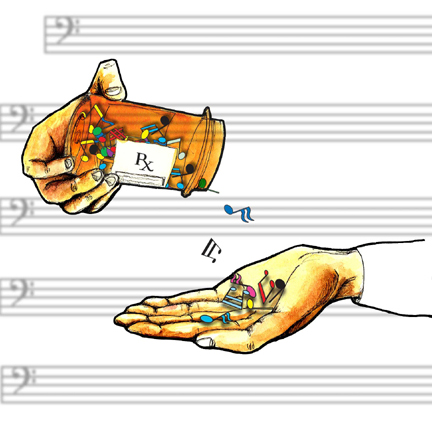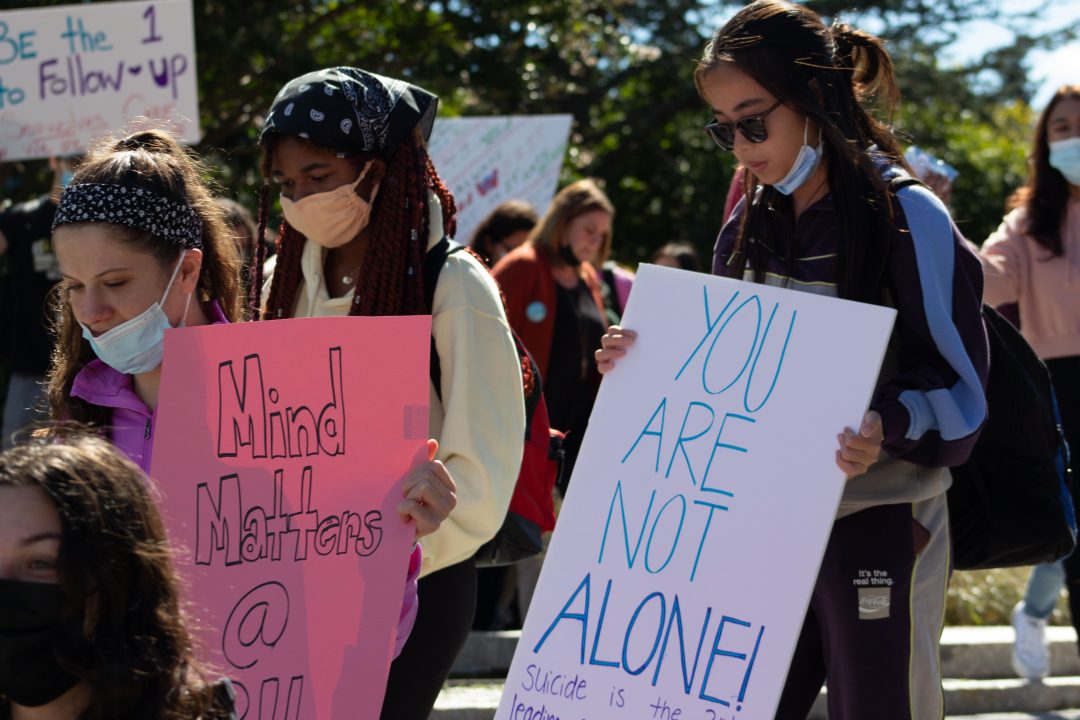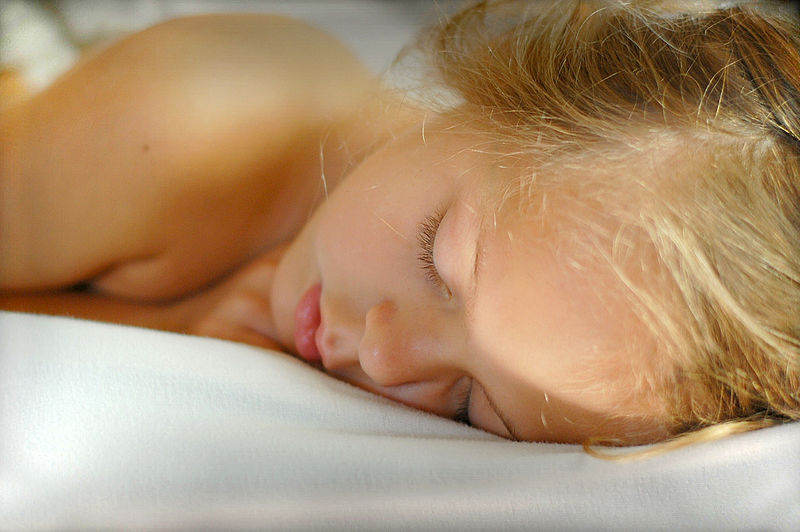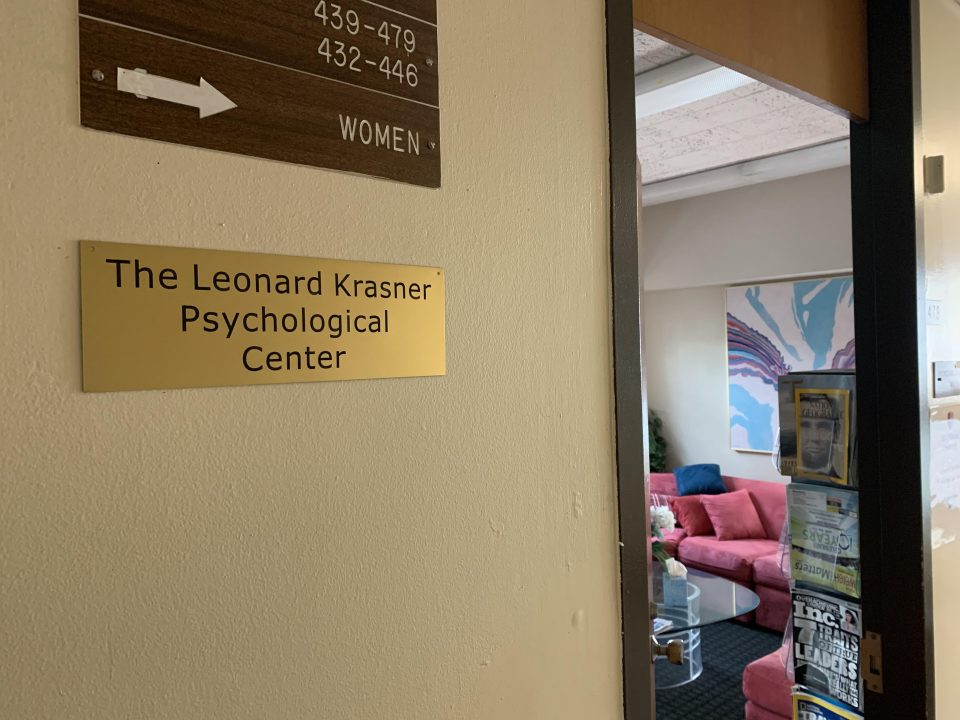
College students are no stranger to sleep deprivation, but a recent discovery shows up to 70% of college students might have an undiagnosed sleep disorder.
More than half of American college students suffer from poor sleep quality, according to a 2017 study by the National Institutes of Health.
The Center for Understanding Biology using Imaging Technology published ongoing research titled “Role of the Metabotropic Glutamate Receptor Subtype 5 in Circadian Rhythm Misalignment and Depression: Implications for Treatment.” The latest set of data included reveals what’s underneath the tip of an iceberg. Russell Rozensky, a clinical associate professor and the co-investigator of the study, said that sleep is not getting the attention it deserves.
“You go to the dentist, you floss twice a day, brush at least twice a day,” Rozensky said. “But when [it comes] to sleep, [people] don’t know what’s healthy.”
Sleep hygiene, which refers to a series of healthy sleep habits that can improve the ability to fall asleep and stay asleep, is seldom regarded as a proper indication of health. Primary physicians rarely ask patients questions about their sleep during a diagnosis or an assessment. In schools, a child’s height and weight are regularly measured and monitored, but never their quality of sleep.
The lack of knowledge surrounding sleep hygiene stretches well into adulthood, making sleep issues a common problem among college students.
“Sleep is an active function for mental health and physical health,” Rozensky said. “If you deprive yourself of sleep, it’s gonna throw you off either mentally or physically.”
This correlation between sleep and mental health is well-supported by research data.
According to research conducted by Rozensky, among all the subjects who participated in the major depressive disorder study, about 70% of them have a significant sleep disorder. Harvard Medical School also found that chronic sleep problems affect 50 to 80% of patients in a typical psychiatric practice.
For students like Michaela Larsen, having a good night’s sleep is not just about self-care — it has an actual impact on her education and career. Currently a graduate student in music performance, Larsen makes sure that she gets at least seven hours of sleep every night to maintain a good voice for her singing lessons and shows.
“A well-rested voice feels flexible and easy to use,” Larsen said. “I notice that when I don’t get enough sleep, I’d just feel not as alert, and also sometimes [get] more sensitive emotionally just because I’m tired.”
While it is widely agreed in the medical field that a healthy adult should have an average of seven to nine hours of shut-eye per night, the actual rest time each individual needs varies. Regardless, it is crucial to build a good sleep schedule and keep it consistent. Going to bed at the same hour, avoiding greasy food and distancing yourself from electronics before bed all help maintain one’s sleep hygiene.
“The bed is meant for two things: sleep is one, sex is the other,” Rozensky said. “But most of us are doing other stuff [like] surfing the internet, checking emails, texting, making phone calls — and now you have what can be called sleep-onset association disorder.”
Many students fall out of a routine once they enter college because of the flexible class schedules and a variety of social activities, and sticking to a healthy sleep habit requires a high level of self-discipline and determination.
The best way to establish good sleep hygiene is to start early.
Rozensky, a sleep expert with over 25 years of experience in the medical field, enforced a strict sleep schedule at home for his kids. “I made [my daughter] go to bed early. She couldn’t watch TV, she couldn’t do things,” he said. “The phone went in the kitchen, not at the bedside.” Rozensky believes that sticking to these rules helped his daughter make the honor or merit roll throughout high school.
But for those who are still struggling to find a good sleep schedule for themselves, it is never too late to start now.
Larsen recounted her college experience as an undergraduate student being “less consistent and just approaching different days from vastly different energy levels” because she did not have a routine for sleep.
“I feel like I wasn’t able to be the most consistent musician and the most consistent teacher that I probably needed to be,” she said.
During the pandemic, however, she started a night-time routine where she would do skincare, light a candle or read a book before bed.
Despite an increase in sleep disorder awareness among the general public, there is still a lack of education on the topic of sleep. To further study sleep issues specifically related to college students, Rozensky is working with Dr. Christine DeLorenzo on expanding their research with a seed grant entitled “Stony Brook University’s Evaluation of Sleep, Depression, and Fatigue among Stony Brook Students.”
“My goal is to try to educate students about what to recognize for sleep disorders, and talking about sleep hygiene is one of them,” Rozensky said.
















